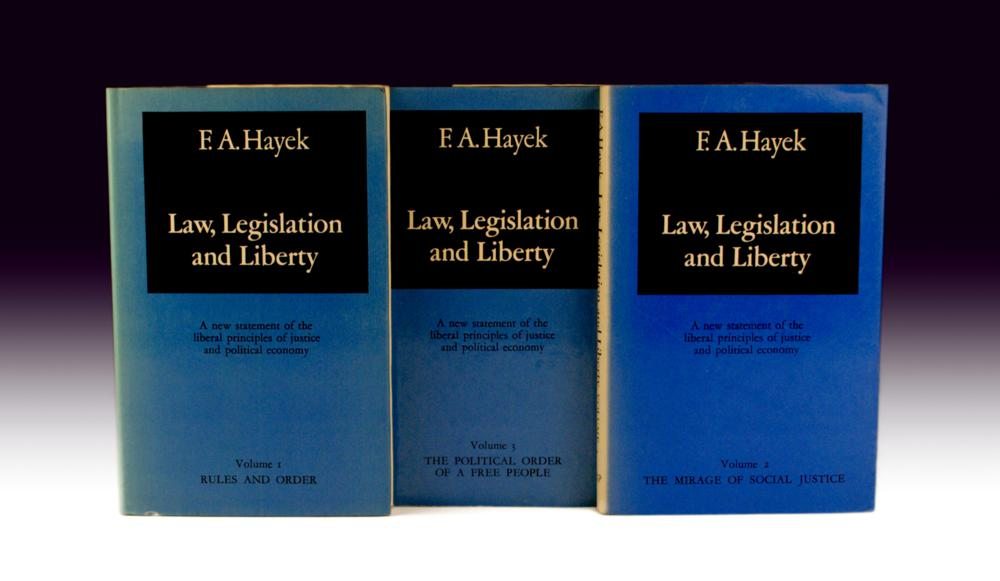Chill Out, Hayek! – Part 2
Also, don’t forget you can now buy Phil’s new book Neoreaction a Basilsik (featuring a chapter I contributed to) on Kindle and in dead tree format (Amazon US, Amazon UK). It’s a more enjoyable read than Hayek. Fucking trust me on this.
*
Hayek’s position on Chile, and on reactionary authoritarianism generally, is the dollfussian logic of Mises working itself out, i.e. the Left makes a kind of temporary recuperative fascism necessary. Mises developed this view when collaborating with the anti-Nazi and anti-Communist ‘Austro-fascist’ Dollfuss.
None of the assumptions are especially non-mainstream – which tells us something terrifying about the mainstream – but Hayek synthesises them, accepts their implications in a principled (yes, in his own vile way he is principled) and non-opportunistic way, and takes them to their logical conclusions. If liberty is threatened by democracy leading to socialism leading to totalitarianism (Nazism being socialism too according to Dollfuss and Mises et al – another argument we still live with) then you need authoritarianism to quash democracy when it goes too far. We’ve already seen Hayek adapting the ideas of (ironically) Carl Schmitt to this end. And Hayek is employing the same distinction between totalitarianism and authoritarianism which provides a moral logic to those ideologues of Western imperialism who advocate supporting ‘strongmen’ against official enemies. It’s the same logic that leads Kissinger and Nixon and the CIA to support Pinochet. And this is just one of many examples. Ironically, it also leads to the same rhetoric that advocates ‘humanitarian intervention’ against (sometimes) the same strongmen when they outlive their usefulness. It’s an ancestor of the arguments of Bush II and the Schmittian-Straussians, of Bernard Henri-Lévy and the ‘Nouveaux Philosophes’, of Hitchens and the New Atheist Islamophobes and the ‘Decent Left’. ‘Islamofascism’, etc. Imperial praxis, in other words. How ironic that the great philosophers of libertarianism provide a ideological bedrock for the wars libertarisns so often to profess to oppose.
Hayek is not the cause of such praxis, but he’s a synthesizer of it, and his syntheses then feed back in as ideology. And the ideology arises from the economic system, hence the axiomatic and foundational belief in the identity of capitalism and liberty. The class nature of the ideology is clear when you remember that Hayek lambasted left-wingers who were prepared to countenance the idea of ‘temporary’ suspensions of democracy as ‘stages’ towards socialism, etc. Particularly egregious, since he justifies his own support for dictatorship by calling it a necessary transitional phase. But there isn’t actually any hypocrisy here. He sees it as fundamentally different to support a tyranny for capitalism than a tyranny for socialism, and he’s right. In its way this is just a recognition of the often-forgotten fact that politics has content as well as form. And he’s right that authoritarianism is necessary to support capitalism. It always has been. Capitalism has always depended upon state violence and the suppression of democracy. Again, the irony. The philosophy of free-market anti-statism reveals how capitalism and the authoritarian state are inextricable.…


 In The Reactionary Mind, Corey Robin claimed – drawing on Naomi Klein and Greg Grandin – that Hayek “admired Pinochet’s Chile so much that he decided to hold a meeting of his Mont Pelerin Society in Viña del Mar”, the seaside resort in Chile where General Pinochet’s CIA-assisted military coup against the democratically elected left-wing government of Salvador Allende was planned. This claim was denounced on Twitter as “made up” by none other than ‘@FriedrichHayek’ himself! (Probably just a fan rather than the man himself resurrected and tweeting… as usual, Hayek’s admirers simply deny his complicity with the Chilean junta, when they can’t get away with just neglecting to mention it. As Robin discovered, they have lots of excuses – he was an old man at the time, etc – all of which turn out to be so much bad faith when you look at them.) Checking, Robin discovered that it is more accurate to say that Hayek attended the meeting where the decision to hold the MPS’s 1981 conference in Viña del Mar was made and, at least, did not oppose it. His position in the Society was still prestigious enough that, at the very least, an objection from him would carried a lot of weight. No such objection seems to have been forthcoming. And indeed, we’re being scrupulously fair to the point of charity by even being this circumspect. Nothing in Hayek’s behaviour suggests he would’ve been likely to object.
In The Reactionary Mind, Corey Robin claimed – drawing on Naomi Klein and Greg Grandin – that Hayek “admired Pinochet’s Chile so much that he decided to hold a meeting of his Mont Pelerin Society in Viña del Mar”, the seaside resort in Chile where General Pinochet’s CIA-assisted military coup against the democratically elected left-wing government of Salvador Allende was planned. This claim was denounced on Twitter as “made up” by none other than ‘@FriedrichHayek’ himself! (Probably just a fan rather than the man himself resurrected and tweeting… as usual, Hayek’s admirers simply deny his complicity with the Chilean junta, when they can’t get away with just neglecting to mention it. As Robin discovered, they have lots of excuses – he was an old man at the time, etc – all of which turn out to be so much bad faith when you look at them.) Checking, Robin discovered that it is more accurate to say that Hayek attended the meeting where the decision to hold the MPS’s 1981 conference in Viña del Mar was made and, at least, did not oppose it. His position in the Society was still prestigious enough that, at the very least, an objection from him would carried a lot of weight. No such objection seems to have been forthcoming. And indeed, we’re being scrupulously fair to the point of charity by even being this circumspect. Nothing in Hayek’s behaviour suggests he would’ve been likely to object.